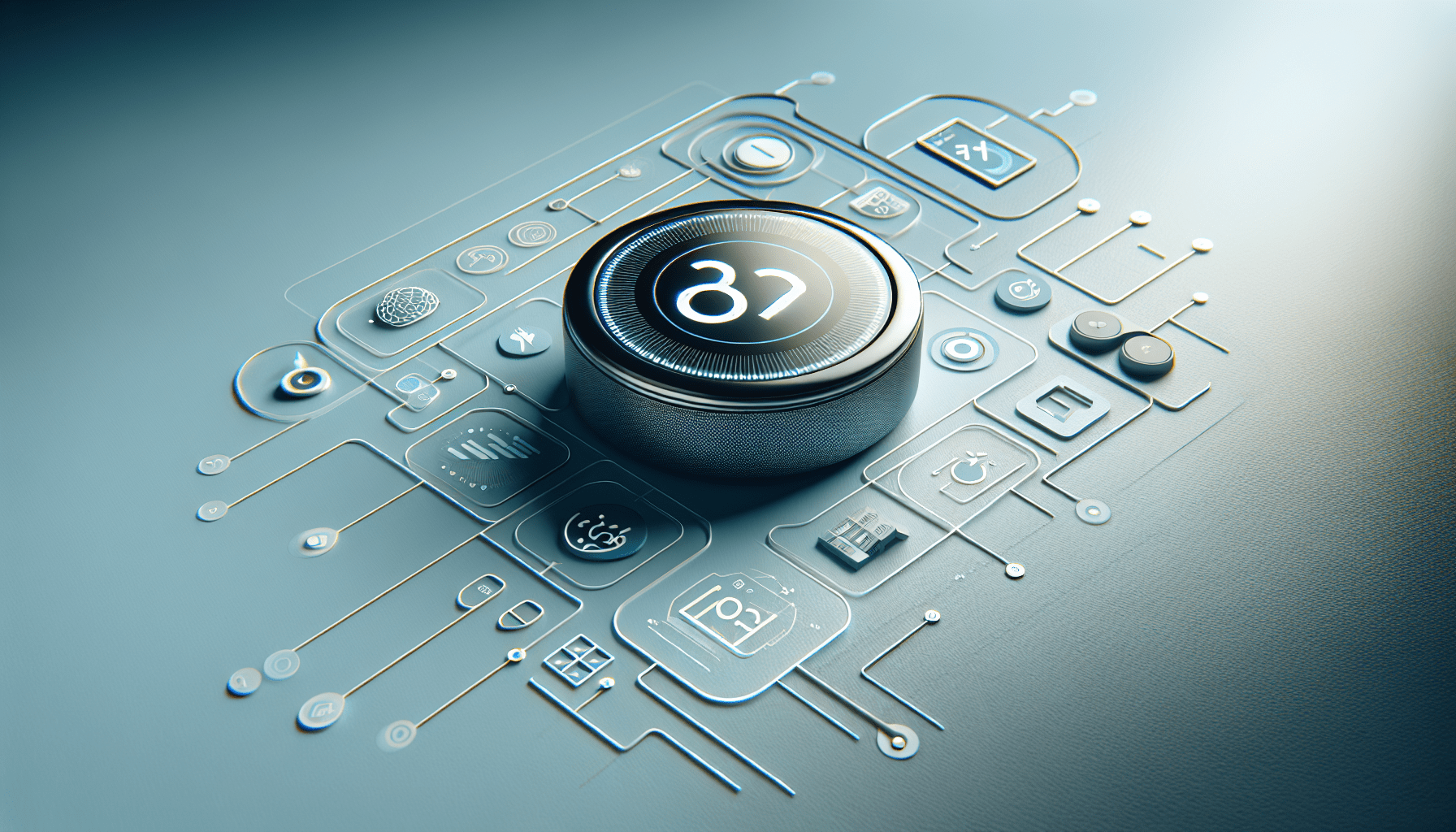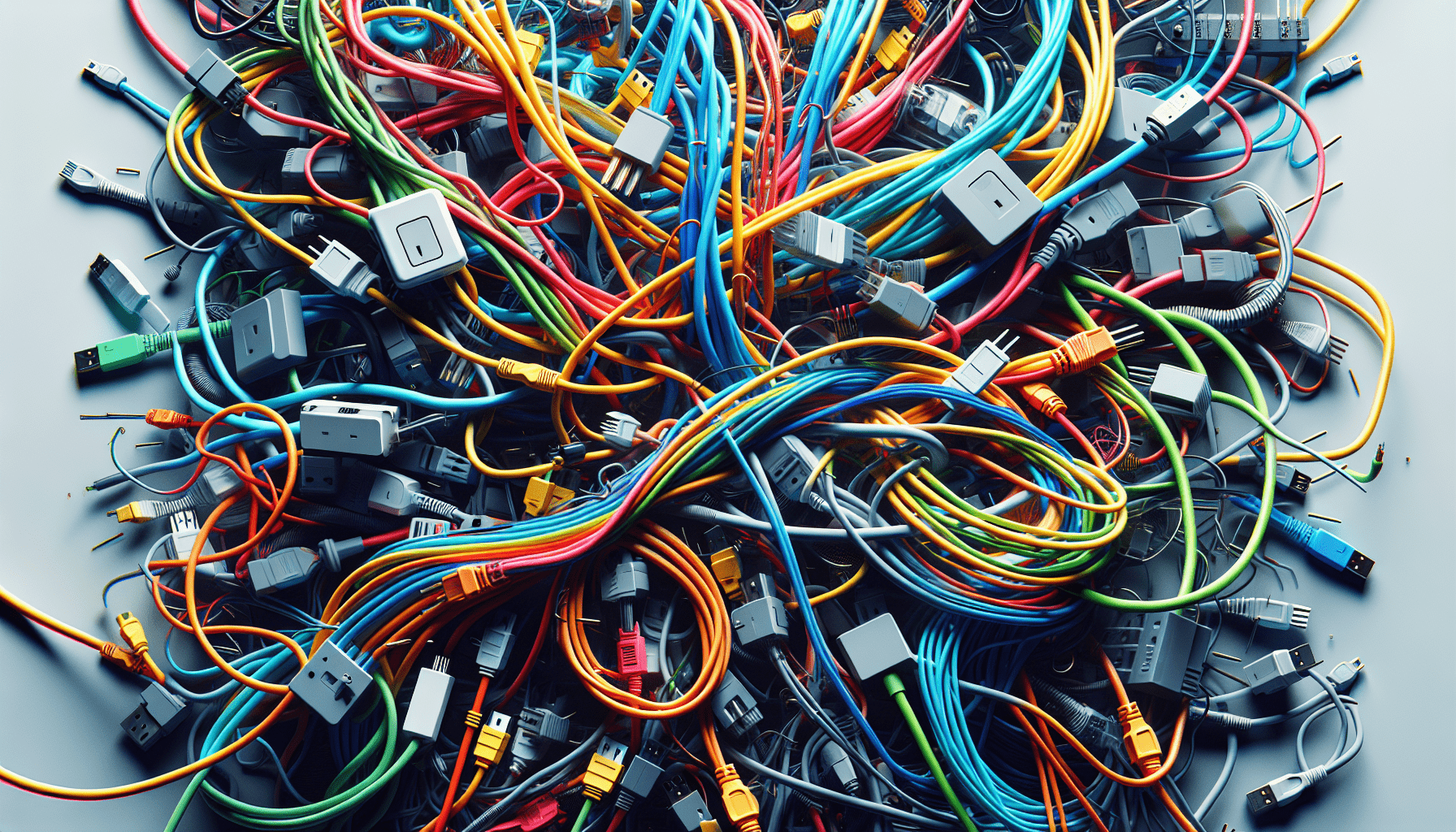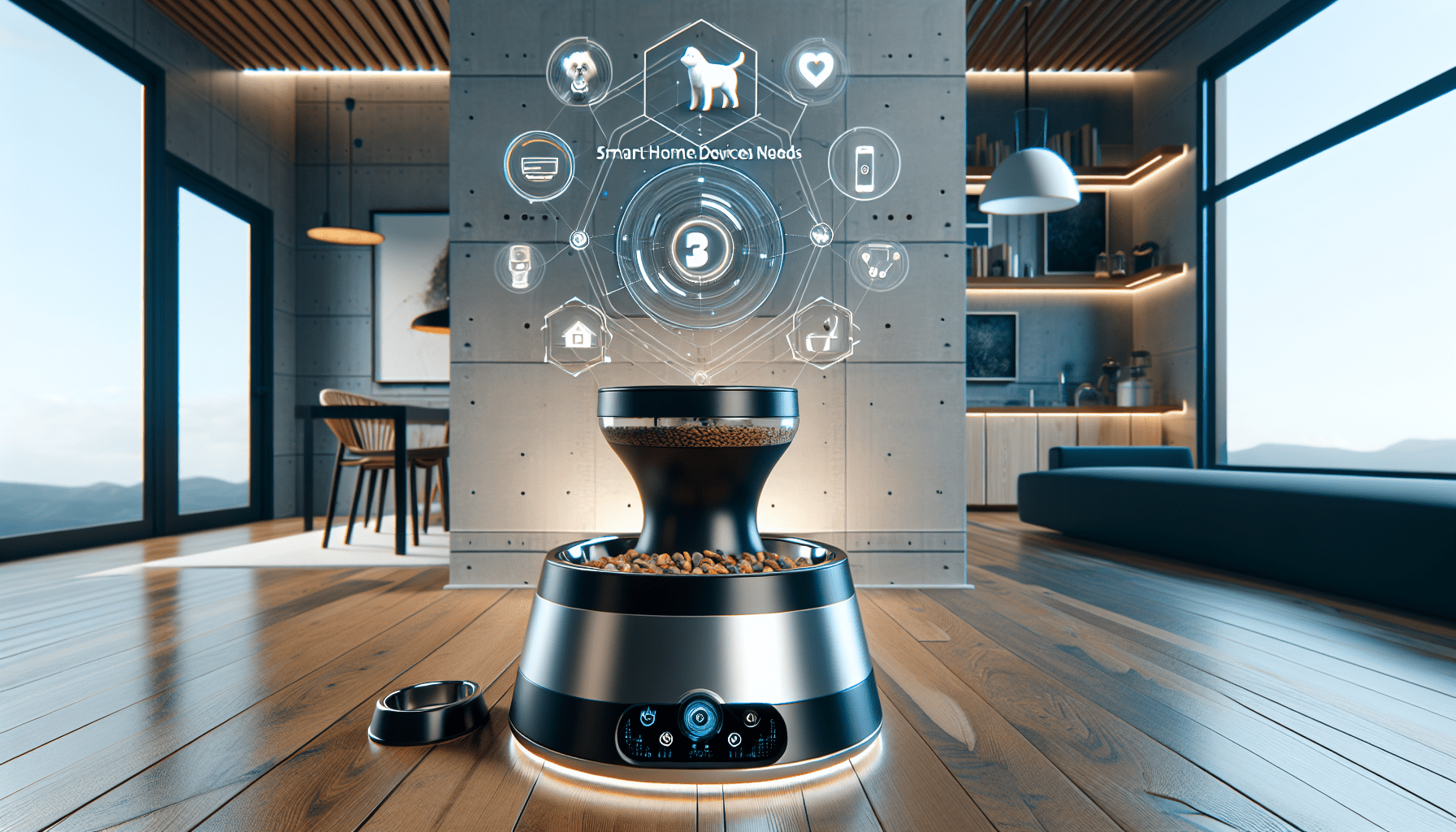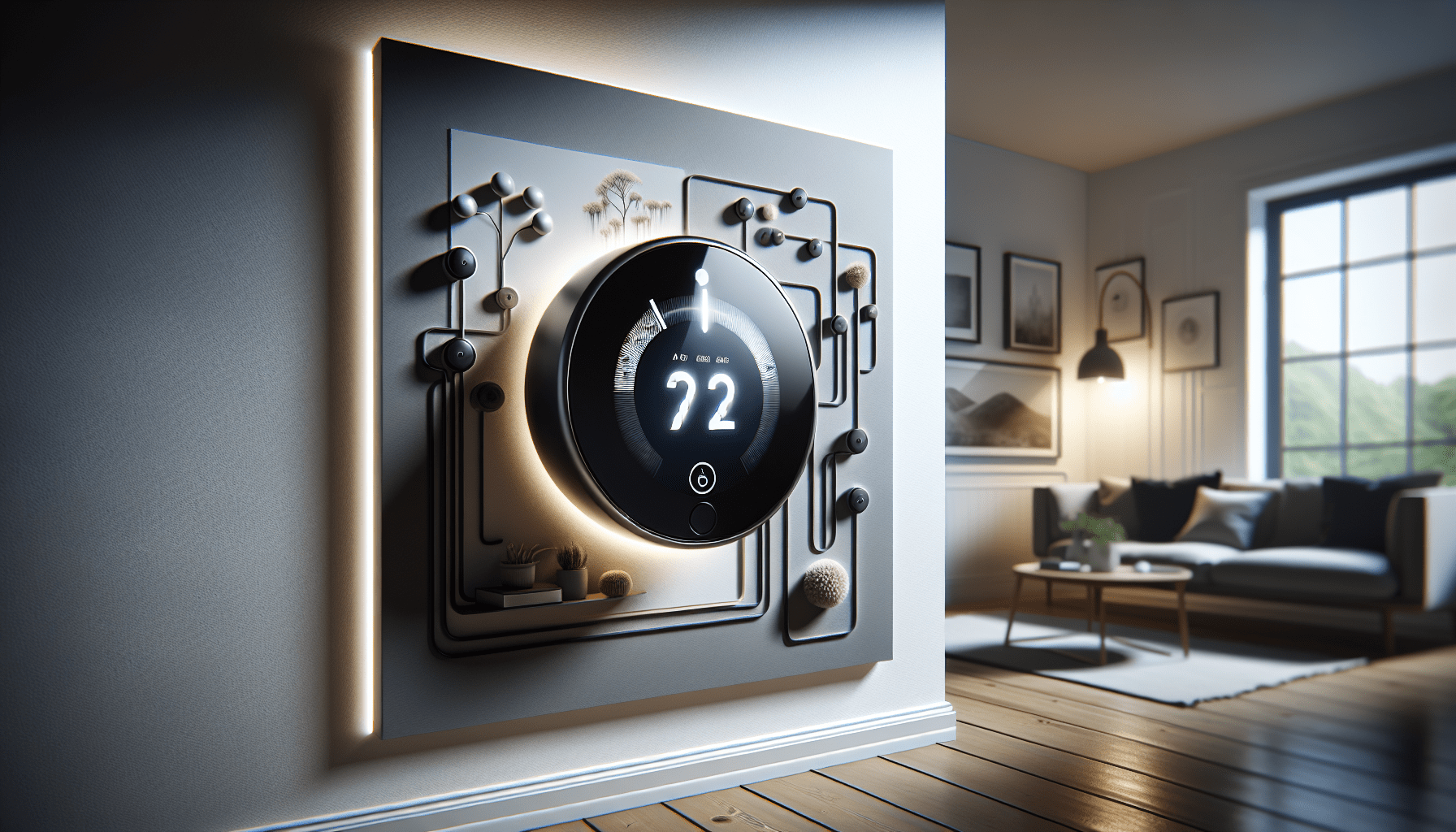Imagine living in a home where every device seamlessly connects and communicates with each other, all while harnessing the power of the sun. It may sound like something out of a futuristic utopia, but the integration of smart home systems with solar panels is a growing reality. By combining the intelligent capabilities of smart home technology with the energy efficiency and sustainability of solar panels, homeowners can experience greater control, convenience, and cost savings. This article explores the possibilities and benefits of integrating smart home systems with solar panels, paving the way for a greener and more connected future.
Benefits of Integrating Smart Home Systems with Solar Panels
Integrating smart home systems with solar panels offers a wide array of benefits, ranging from reduced energy costs to environmental benefits. By harnessing the power of solar energy and incorporating it into a smart home setup, you can create a more energy-efficient and sustainable living environment.
Reduced Energy Costs
One of the most significant advantages of integrating smart home systems with solar panels is the potential for reduced energy costs. Solar power is a renewable and free source of energy, and by utilizing it to power your home, you can greatly reduce or even eliminate your dependency on traditional electricity grids. This means a significant reduction in your monthly utility bills, resulting in substantial long-term savings.
Increased Energy Efficiency
Another benefit of integrating smart home systems with solar panels is increased energy efficiency. Smart home devices, such as smart thermostats and smart appliances, are designed to optimize energy usage and decrease wasteful consumption. When combined with solar panels, these devices can work together to ensure that you are using your solar-generated electricity efficiently, further reducing your energy consumption and maximizing your savings.
Environmental Benefits
Integrating smart home systems with solar panels also provides significant environmental benefits. Solar energy is a clean and renewable energy source with minimal environmental impact. By reducing your reliance on fossil fuels and traditional electricity sources, you are contributing to the global effort to combat climate change and reduce greenhouse gas emissions. This helps create a more sustainable and greener future for generations to come.
Components of a Smart Home System
Before exploring the integration of smart home systems with solar panels, it is essential to understand the various components that make up a smart home system. These components are designed to enhance the convenience, comfort, and energy efficiency of your home.
Smart Thermostats
Smart thermostats are programmable devices that regulate the temperature in your home based on your preferences and habits. These devices can learn your daily routine, adjust the temperature accordingly, and optimize energy usage. By integrating smart thermostats with solar panels, you can ensure that your home is always at the right temperature while minimizing energy waste.
Smart Lighting
Smart lighting systems allow you to control the lighting in your home remotely. With the help of smartphone apps or voice commands, you can turn lights on or off, adjust brightness, and even change colors. By integrating smart lighting with solar panels, you can schedule lighting to coincide with the availability of solar energy, further optimizing energy consumption.
Smart Appliances
Smart appliances, such as refrigerators, washing machines, and dishwashers, incorporate advanced technology to make your everyday tasks more efficient. These appliances are designed to communicate with other smart devices and can be programmed to operate during off-peak hours when energy demand is low. When integrated with solar panels, smart appliances can automatically adjust their functioning to utilize solar energy whenever available.
Energy Monitoring Systems
Energy monitoring systems provide real-time information about your home’s energy usage. These systems track electricity consumption, identify energy-intensive devices, and provide insights to help you make informed decisions about energy conservation and optimization. By integrating energy monitoring systems with solar panels, you can easily track your solar power generation and monitor how effectively your home is using the solar energy produced.
How Solar Panels Work
Solar panels, also known as photovoltaic (PV) panels, convert sunlight into usable electricity. Understanding how solar panels work is crucial to fully appreciate the integration of smart home systems with solar power generation.
Photovoltaic Cells
Photovoltaic cells are the building blocks of solar panels. These cells are made of semiconductor materials, usually silicon, which have the property to convert sunlight into direct current (DC) electricity through the photovoltaic effect. When sunlight hits the surface of the solar panel, it excites the electrons in the semiconductor material, generating an electric current.
Solar Inverters
Once the direct current electricity is generated by the solar panels, it needs to be converted into alternating current (AC) electricity to power your home’s electrical devices. Solar inverters perform this function by converting the DC electricity into AC electricity, ensuring compatibility with your home’s electrical system.
Battery Storage Systems
Battery storage systems, also known as solar batteries, allow you to store excess solar-generated electricity for use when sunlight is not available, such as during nighttime or cloudy days. These batteries help maximize self-consumption of solar energy and provide backup power during power outages. Integrating battery storage systems with smart home systems can enhance the efficiency of solar energy usage and provide a more reliable power supply for your home.
Integrating Smart Home Systems with Solar Panels
Integrating smart home systems with solar panels involves combining the functionality of both systems to create a seamless and energy-efficient living environment. There are several ways in which these systems can be integrated to maximize the benefits of solar power generation.
Monitoring and Controlling Solar Panels
Integrating smart home systems with solar panels enables you to monitor and control the performance of your solar panels remotely. Through smartphone apps or web interfaces, you can track the power output, monitor energy generation trends, and receive alerts in case of any system faults. This allows you to optimize the performance of your solar panels and ensure they are operating at their highest efficiency.
Optimizing Energy Consumption
Smart home systems can analyze data from your solar panels and various energy-consuming devices to optimize energy consumption. By using machine learning algorithms and artificial intelligence, smart home systems can adjust the usage patterns of appliances and heating/cooling systems to coincide with the availability of solar energy. This ensures that your home is using solar-generated electricity to its fullest potential, reducing reliance on the grid and maximizing savings.
Maximizing Self-Consumption
Integrating smart home systems with solar panels allows you to maximize self-consumption of solar energy. Self-consumption refers to the utilization of solar-generated electricity within your home, rather than sending excess power back to the grid. Smart home systems can automatically adjust the energy usage of different devices based on the availability of solar energy, minimizing grid dependency and further reducing energy costs.
Managing Energy Storage
Battery storage systems play a crucial role in maximizing the benefits of integrating smart home systems with solar panels. By intelligently managing the storage and usage of solar-generated electricity, smart home systems can ensure that excess energy is stored in batteries for later use, rather than being wasted. This enhances the overall efficiency of the solar power system and provides a reliable backup power source during emergencies or power outages.
Smart Home Automation and Solar Power Generation
Smart home automation, combined with solar power generation, offers additional benefits beyond energy efficiency and cost savings. These benefits enhance the convenience and functionality of your home while reducing your carbon footprint.
Automated Energy Management
By integrating smart home automation with solar panels, you can automate various energy management tasks. For example, you can set up schedules for appliances to operate during daylight hours when solar power generation is highest. Additionally, you can create customized settings for each room, adjusting temperature, lighting, and other parameters based on occupancy or time of day.
Smart Charging for Electric Vehicles
If you own an electric vehicle (EV), integrating smart home systems with solar panels allows you to benefit from smart charging capabilities. With smart charging, you can schedule your vehicle’s charging sessions to coincide with peak solar power generation. This ensures that you are using solar energy to charge your EV, reducing reliance on the grid and minimizing the environmental impact of transportation.
Smart Home System Compatibility with Solar Panels
Compatibility between smart home systems and solar panels is essential to ensure seamless integration and optimal performance. However, there can be compatibility issues between different devices and systems.
Compatibility Issues
Compatibility issues may arise due to differences in communication protocols and standards used by various smart home devices and solar panel systems. For example, some devices may use Zigbee or Z-Wave protocols, while others may rely on Wi-Fi or Bluetooth connectivity. It is crucial to ensure that the devices you choose for your smart home system are compatible with your solar panel system.
Interoperability Solutions
To overcome compatibility issues, manufacturers and industry organizations are working towards developing interoperability solutions. These solutions aim to create a unified standard for smart home systems and solar panel systems, allowing different devices to communicate and work together seamlessly. The goal is to ensure that consumers have a wider range of options and can select devices from different manufacturers without worrying about compatibility constraints.
Overcoming Challenges in Integration
While integrating smart home systems with solar panels offers numerous benefits, there can be challenges that need to be addressed for successful integration.
Technical Challenges
Integrating two complex systems like smart home automation and solar power generation may pose technical challenges. These challenges include ensuring proper communication and data exchange between devices, compatibility issues, and system reliability. It is crucial to work with reputable installers or seek professional advice to overcome these technical challenges and ensure a seamless integration process.
Cost Considerations
Another challenge in integrating smart home systems with solar panels is the upfront cost. While the long-term benefits are significant, the initial investment can be a deterrent for some homeowners. However, it is important to consider the return on investment and the potential savings in energy costs over the system’s lifespan. Additionally, various financial incentives and government programs exist to help offset the installation cost, making it more affordable for homeowners.
Potential Future Developments
The integration of smart home systems with solar panels is a rapidly evolving field, with ongoing research and development efforts to enhance usability and functionality. Some potential future developments in this area include:
Advancements in Energy Management Systems
As technology progresses, energy management systems will become more sophisticated, incorporating advanced algorithms and machine learning capabilities. These advancements will enable even more precise energy optimization and personalized settings, making smart home systems even more efficient.
Integration with Smart Grid
Integrating smart home systems with solar panels can be further enhanced by connecting them to a larger smart grid network. This integration would enable bidirectional communication between homes and utility providers, allowing for better load management and balancing of energy supply and demand. This would create a more efficient and resilient energy infrastructure.
Case Studies of Successful Integration
Numerous real-life examples demonstrate the successful integration of smart home systems with solar panels. These case studies highlight the benefits achieved by homeowners and the positive impact on energy consumption and costs.
Conclusion
Integrating smart home systems with solar panels brings forth a myriad of benefits, including reduced energy costs, increased energy efficiency, and environmental benefits. By leveraging the capabilities of both systems, homeowners can enjoy seamless automation, optimized energy consumption, and a greener lifestyle. While there may be challenges in terms of compatibility and upfront cost, the potential for long-term savings and a sustainable future make the integration of smart home systems with solar panels a wise investment choice. With ongoing advancements in energy management systems and the potential integration with smart grids, the future prospects of this integration are promising. By considering real-life examples and recommendations, homeowners can make informed decisions and embark on a journey to a smart, energy-efficient, and environmentally friendly home.




